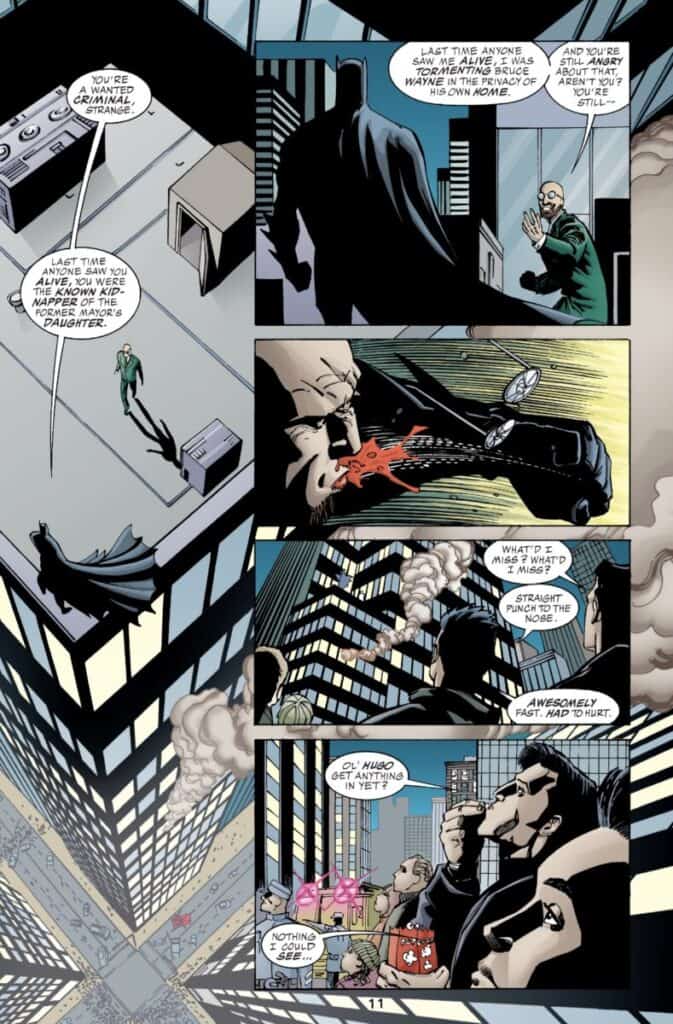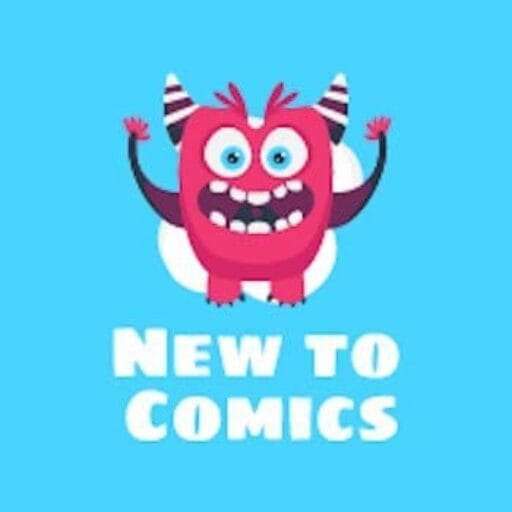***Contains Spoilers***
Batman: Gotham Knights (#1-32) started off as an ambitious series focused on delving into Batman’s relationships with his allies, enemies, and his city in the aftermath of Gotham’s near-destruction. While the early issues leaned heavily on recapping the Bat-Family dynamics, the series gradually shifted toward a mix of standalone character-driven stories and major arcs, some of which were tied to larger Bat-related events. However, there were some standout moments—such as an intense psychological battle with Hugo Strange—the series as a whole didn’t quite live up to its potential, feeling more like filler between big storylines than an essential read.
There are a few gems scattered throughout Gotham Knights. The Hugo Strange story, where he fakes Batman’s death to toy with his enemies and allies, stood out as a psychological thriller. Strange’s obsession with Batman is well-handled, and seeing the ripple effect of Bruce’s “death” on his allies adds layers to the narrative. Another highlight was the quieter, more introspective storylines, like the one where Bruce has nothing urgent to do and calls Aquaman to help him deal with the oversized penny in the Batcave post-earthquake. It’s oddly touching and humanizes Bruce in a way many stories don’t.
The series also does a solid job of exploring the struggles of Batman’s proteges. Nightwing’s adoption as Bruce’s son is handled with care and emotional weight, showcasing Dick’s complex relationship with his mentor-turned-father figure. Similarly, Tim Drake’s arc during a Poison Ivy-centric story, where he begins doubting himself and contemplates quitting as Robin, offers a relatable look at imposter syndrome and the pressures of living up to Batman’s expectations. These smaller character-driven moments were where the series shone brightest.
Unfortunately, those bright spots were buried in a series that often felt disjointed and overly reliant on its framing device. The omnipresent narrator, whose voice was intermixed with the action, made the story harder to follow and detracted from the emotional impact of many scenes. Instead of drawing me into Gotham’s shadowy streets, the narration pulled me out of the moment, breaking the immersion and making the stories feel unnecessarily convoluted.

The early issues, which focused on summarizing Batman’s relationships with various characters, felt more like an extended primer for new readers than compelling storytelling. While it’s nice to revisit the dynamics of the Bat-Family, the execution was surface-level and often lacked nuance. Beyond a handful of strong individual issues, most of the series felt like filler. Even the major crossovers, like Bruce Wayne: Murderer? and No Man’s Land, overshadowed the book itself rather than elevating it.
Overall, Batman: Gotham Knights isn’t a bad series—it has its moments of emotional depth and psychological intrigue, particularly in its exploration of the Bat-Family and Bruce Wayne’s relationships. However, it struggles to find its footing as a cohesive, must-read series. Aside from a few standout issues, it feels like a collection of vignettes that don’t quite come together into something memorable. While I liked parts of it, there’s little here that I’d revisit outside the major crossover events. 2 stars. Good stories, but not enough to recommend for a reread.
Feature Image Gotham Knights #8 cover art by Brian Bolland
Keep NewToComics.com running with a donation or shopping with through our affiliates—your support helps maintain the site and continue guiding new readers into the world of comics!


